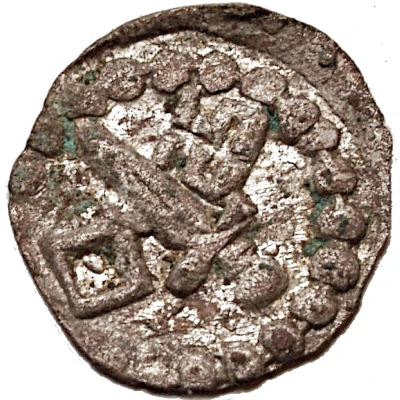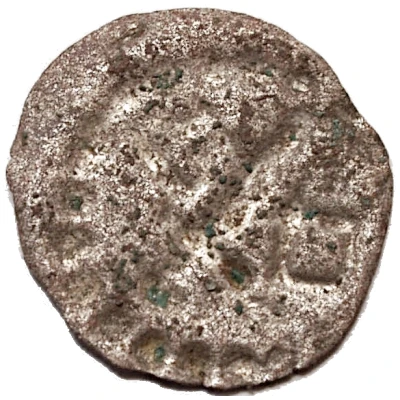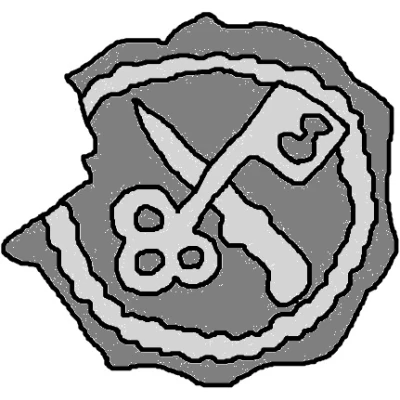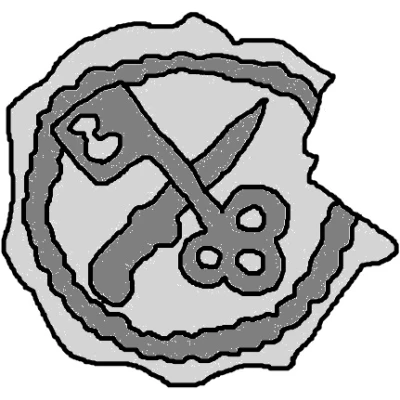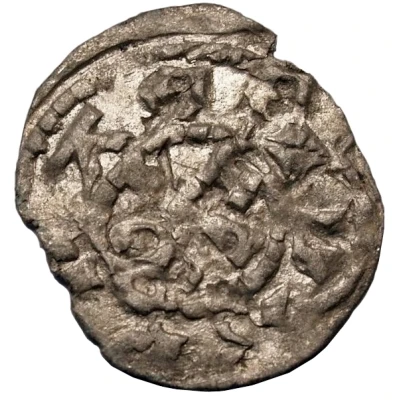
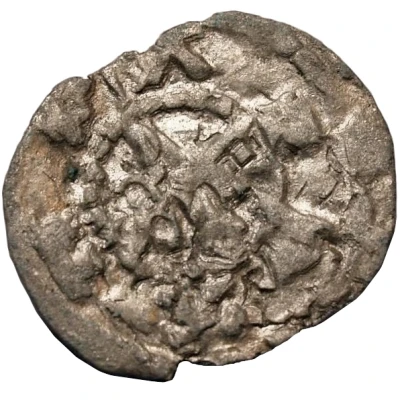

© Haljak Coin Auction
1 Lübische - Dietrich II Damerow ND
| Silver | 0.39 g | 13 mm |
| Issuer | Bishopric of Dorpat (Livonian Confederation) |
|---|---|
| Bishop | Dietrich II Damerow (1378-1400) |
| Type | Standard circulation coin |
| Years | 1379-1400 |
| Value | 1 Lübische = ⅓ Artig |
| Currency | Artig (1346-1426) |
| Composition | Silver |
| Weight | 0.39 g |
| Diameter | 13 mm |
| Shape | Round (irregular) |
| Technique | Hammered |
| Orientation | Variable alignment ↺ |
| Demonetized | Yes |
| Updated | 2024-10-06 |
| Numista | N#143365 |
|---|---|
| Rarity index | 93% |
Reverse
Crossed sword and key surrounded by legend.
Script: Latin (uncial)
Lettering: DARPA · E
Lettering (regular font): DARPA · E
Translation:
Darpatensis Episcopus
Bishopric of Dorpat
Edge
Plain
Comment
Lübische means Lübeck-pfennig, which indicates the popularity of foreign coins (specifically those from Lübeck) in the earlier times of Livonian coinage.The Lübische pieces of Dietrich II Damerow (1379-1400), Heinrich II Wrangel (1400-1410), Bernhard II Bülow (1410-1413), and Dietrich III Resler (1413-1441) can be difficult to distinguish. While the legend is a good indicator, it can sometimes be blurred or illegible. With that being said, the designs on each ruler's coins are slightly different, varying in size and style.
Interesting fact
One interesting fact about the 1 Lübische - Dietrich II Damerow ND (1379-1400) coin from the Bishopric of Dorpat (Livonian Confederation) is that it features a unique blend of Gothic and Baltic architectural styles on its reverse side. The coin's design showcases a intricately detailed depiction of the Bishop's castle in Dorpat, which was an important stronghold for the Livonian Order, a military order of German knights who ruled over the region during the Middle Ages. The castle's architecture is depicted in a Gothic style, with pointed arches and ribbed vaults, while the surrounding buildings and walls are depicted in a Baltic style, with stepped gables and ornate brickwork. This blend of styles reflects the cultural and architectural influences of the region during the time period, and makes the coin a fascinating piece of history for collectors and enthusiasts.
